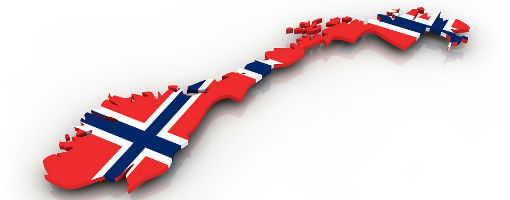Finnish earnings-related pension assets fell by approximately €1bn in the first quarter of 2025 (Q1), ending March with €270bn in assets under management, analysis by the Finnish Pension Alliance (Tela) has found.
Tela said the downturn highlights the “growing importance” of diversification in pension investment strategies, both by asset class and geographical region, amid global market instability.
At the end of March, the breakdown of real returns by investment class in Q1 was as follows: equity and equity-type investments at -1.3 per cent, fixed-income investments at -0.2 per cent, property investments at 0.0 per cent, and alternative investments at 0.1 per cent.
No significant changes were reported in asset allocation by class or geographic distribution.
According to Tela chief economist, Mikko Mäkinen, markets began the year on a positive note following a strong 2024. However, escalating geopolitical tensions and shifting trade policies, particularly from the United States, dampened investor confidence and sent key indices lower as the quarter progressed.
“The US government's trade policies unnerved the markets. Key stock indexes went from highs at the start of the year downwards as we approached the end of March,” Mäkinen explained.
The nominal return on pension assets in Q1 was -0.3 per cent, while the real return – adjusted for inflation – stood at -0.8 per cent. In an unusual twist, US stock markets underperformed their European counterparts, slightly tempering the overall decline in equity returns for the quarter.
“The performance of European markets compensated for the American share markets’ sluggishness,” Mäkinen noted. “As a whole, the yield on earnings-related pension providers’ equity investments was slightly negative during the first quarter.”
While the European Central Bank (ECB) continued to cut interest rates amid slowing inflation, the US Federal Reserve maintained its key rate, even as market interest rates declined due to mounting fears of recession.
Fixed-income investments outperformed equities during the quarter, with property and alternative investments emerging as the most stable asset classes in a volatile environment.
Investment market uncertainty has persisted beyond Q1, with sharp daily fluctuations in stock prices. However, Mäkinen reassured that Finland’s pension providers are equipped to weather short-term volatility.
“Earnings-related pension providers’ investment horizon is usually over several decades, allowing the system to survive short-term fluctuations. In addition, the pension providers have excellent solvency,” he said.
Meanwhile, legislative work is underway on new pension reform measures. Following an agreement reached by labour-market organisations in January, a working group under the Ministry of Social Affairs and Health is drafting amendments that include updates to investment regulations.
“Reforming the regulation of how pension providers invest their money involves a lot of details, which the ministerial working group is currently investigating,” said Mäkinen. “Many technical issues and the related impact assessments will also be teased out as the group does its work.”
Recent market turbulence has sparked speculation about how the reforms might impact pension investments, but Mäkinen urged patience, emphasising that the legislative process is still ongoing.
“One of the areas where an impact assessment will be done is the property market, and that assessment will be reflected in the Bill the working group produces,” he said.
Despite the short-term losses in equity markets, Mäkinen remains optimistic about the long-term outlook and the goals of the upcoming reforms.
“The new investment regime will aim at increasing equity investments, where we often see very volatile fluctuations. However, finance theory and historical time series show ‘that equity investments perform best over the long term,” he said.
Latest News
-
Women’s average pension in the EU 24.5% lower than men’s in 2024
-
Sweden's AP3 reports 'record high' fund capital of SEK 577.1bn in 2025
-
NBIM ‘aiming to be a leader’ in managing climate change risks and opportunities
-
Nature capital now a 'mainstream asset' for UK pension funds
-
European Pensions Awards 2026: Deadline extended
-
Pensioenfederatie urges EU to align public and private investment in climate resilience
Podcast: Stepping up to the challenge

In the latest European Pensions podcast, Natalie Tuck talks to PensionsEurope chair, Jerry Moriarty, about his new role and the European pension policy agenda
Podcast: The benefits of private equity in pension fund portfolios

The outbreak of the Covid-19 pandemic, in which stock markets have seen increased volatility, combined with global low interest rates has led to alternative asset classes rising in popularity. Private equity is one of the top runners in this category, and for good reason.
In this podcast, Munich Private Equity Partners Managing Director, Christopher Bär, chats to European Pensions Editor, Natalie Tuck, about the benefits private equity investments can bring to pension fund portfolios and the best approach to take.
In this podcast, Munich Private Equity Partners Managing Director, Christopher Bär, chats to European Pensions Editor, Natalie Tuck, about the benefits private equity investments can bring to pension fund portfolios and the best approach to take.
Mitigating risk
BNP Paribas Asset Management’s head of pension solutions, Julien Halfon, discusses equity hedging with Laura Blows
© 2019 Perspective Publishing Privacy & Cookies








Recent Stories